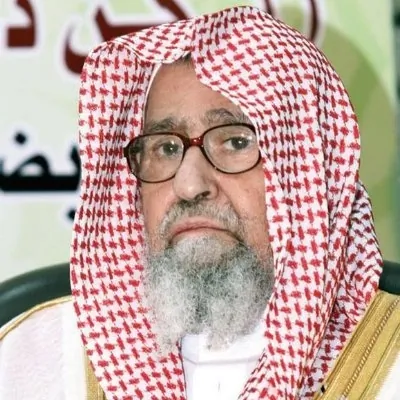
Saudi Arabia Names Sheik Saleh Al-Fawzan Grand Mufti
King Salman bin Abdulaziz has appointed Sheik Saleh bin Fawzan bin Abdullah Al-Fawzan, 90, as Saudi Arabia’s fourth Grand Mufti through a royal decree. This most important change in one of the top Islamic clerical roles in the Sunni Muslim world came after Sheik Abdulaziz bin Abdullah al-Sheik’s death in September.
Saudi Crown Prince and Prime Minister Prince Mohammed bin Salman bin Abdulaziz Al Saud enacted this transition in the kingdom’s religious leadership. The previous Grand Mufti Abdul Aziz Al Sheik served in this prestigious position for 25 years until his death at 82. This leadership transition holds special meaning since Saudi Arabia’s holy cities of Mecca and Medina welcome millions of Muslims for their mandatory Hajj pilgrimage each year.
Saudi Arabia appoints Sheik Saleh Al-Fawzan as Grand Mufti
King Salman bin Abdulaziz issued a royal decree to appoint Sheik Saleh bin Fawzan bin Abdullah Al-Fawzan as the new Grand Mufti of Saudi Arabia on October 22, 2025. This most important appointment followed the passing of his predecessor, Sheik Abdulaziz bin Abdullah al-Sheik, in September. Sheik Saleh, at 90 years old, becomes the kingdom’s fourth Grand Mufti and takes one of the most influential religious positions in the Sunni Muslim world.
Crown Prince Mohammed bin Salman recommended Sheik Al-Fawzan for the position, following decades-old Saudi protocol. Religious affairs experts say this selection arranges with “the established Saudi religious policy of selecting the most senior and well respected alim (religious scholar) within the council as the successor”.
Sheik Al-Fawzan’s new role includes two other prestigious positions:
- Chairman of the Council of Senior Scholars
- President of the General Presidency of Scholarly Research and Ifta
These positions carry ministerial rank, highlighting his appointment’s importance within Saudi Arabia’s government structure.
Unconfirmed rumors spread on social media platforms that Salih ibn Humayd might take the position. The official royal decree ended this speculation by confirming Sheik Al-Fawzan’s appointment.
International observers describe Sheik Al-Fawzan as a prominent ultraconservative scholar. He now leads the responsibility to provide authoritative religious guidance and issue fatwas (religious rulings) on key matters that affect the kingdom and Muslims worldwide.
Sheik Saleh Al-Fawzan builds decades-long scholarly legacy
Sheik Saleh Al-Fawzan’s life trip started in difficult times. He was born in 1935 in ash-Shamasiyyah, Qassim Province. His father’s early death left him in the care of extended family. The local mosque imam Sheik Hammoud Bin Suleiman al-Tilal became his first teacher. He taught him Quran recitation and basic reading and writing skills.
His schooling officially began in 1950 at ash-Shimasiyyah public school. He completed his primary education at al-Faisaliyah School in Buraydah by 1952. After working as a primary school teacher, he joined the Scholarly Institute in Buraydah at its opening in 1954.
Sheik Al-Fawzan’s academic achievements grew steadily over the years. He graduated from the College of Sharia in Riyadh in 1961. His pursuit of higher education led to master’s and doctoral degrees in Fiqh (Islamic jurisprudence). His doctoral research explored “Rulings Concerning Food in Islamic Sharia”.
His career advanced from teaching at the Scholarly Institute in Riyadh to the College of Principles of Religion. He later became the director of the Higher Institute of Judiciary. The Sheik also led Saudi Arabia’s Supreme Court of Justice.
Sheik Al-Fawzan’s influence reached far beyond his administrative duties. His radio program “Noor ala al-Darb” (“Light the Way”), books, and fatwas brought him widespread recognition. His scholarly work includes research, guidance of theses, and religious rulings. These contributions established him as a leading Islamic authority before his appointment as Grand Mufti.
Saudi Arabia’s Grand Mufti Abdulaziz Al Sheik leaves lasting legacy
Sheik Abdulaziz bin Abdullah Al ash-Sheik’s death on September 23, 2025, ended the longest tenure any Saudi Grand Mufti held since 1953. He served as the kingdom’s highest religious authority from 1999 to 2025 and became one of the most influential voices in the global Muslim community.
Sheik Abdulaziz came from the prestigious Al ash-Sheik family and was born in Mecca on November 30, 1943. His lineage traced directly to Muhammad ibn Abd al-Wahhab, who founded Wahhabism in the 18th century. He learned Islamic law at an early age despite being blind.
His role as Grand Mufti included leadership of the Council of Senior Religious Scholars and the Permanent Committee for Islamic Research and Issuing Fatwas. He made several most important rulings against extremism and declared suicide bombings “great crimes” in 2013. He also took a strong stance against ISIS in 2014, labeling them “enemy number one of Islam”.
Sheik Abdulaziz balanced traditional values with modern changes. While known for his conservative views, he supported certain modernization initiatives under Crown Prince Mohammed bin Salman, including women’s right to drive. Many scholars called him “the last of the great Wahhabis”.
The kingdom honored his passing with funeral prayers at Imam Turki bin Abdullah Grand Mosque in Riyadh. Additional prayers took place at Masjid al-Haram in Mecca and the Prophet’s Mosque in Medina.
Sheik Saleh Al-Fawzan has become Saudi Arabia’s fourth Grand Mufti, marking a crucial change in the kingdom’s religious leadership. The 90-year-old scholar’s decades of academic and spiritual expertise will give millions of Muslims worldwide continued religious guidance. His journey from modest beginnings in Qassim Province to earning a doctorate in Islamic jurisprudence has prepared him well for this vital role.
King Salman bin Abdulaziz’s royal decree has placed Sheik Al-Fawzan in charge of multiple prestigious positions. He now leads as the Grand Mufti, Chairman of the Council of Senior Scholars, and President of the General Presidency of Scholarly Research and Ifta. These appointments showcase the deep trust in his religious scholarship and leadership abilities.
Sheik Abdulaziz’s legacy as Grand Mufti spans 26 years of Saudi religious history. He tackled complex religious questions while adapting to modernization initiatives under Crown Prince Mohammed bin Salman. His clear stance against extremism and terrorism showed how religious leaders must balance tradition with contemporary demands.
Saudi Arabia’s role as guardian of Islam’s holiest sites in Mecca and Medina requires strong religious leadership. This transition impacts way beyond the kingdom’s borders and influences millions of Sunni Muslims who seek guidance from Saudi religious authorities.
Sheik Al-Fawzan, known for his ultraconservative scholarship, must now provide authoritative religious direction in these fast-changing times. His selection follows Saudi tradition of choosing the most senior and respected religious scholar. This appointment maintains traditional religious scholarship while addressing modern challenges that face the global Islamic community.






